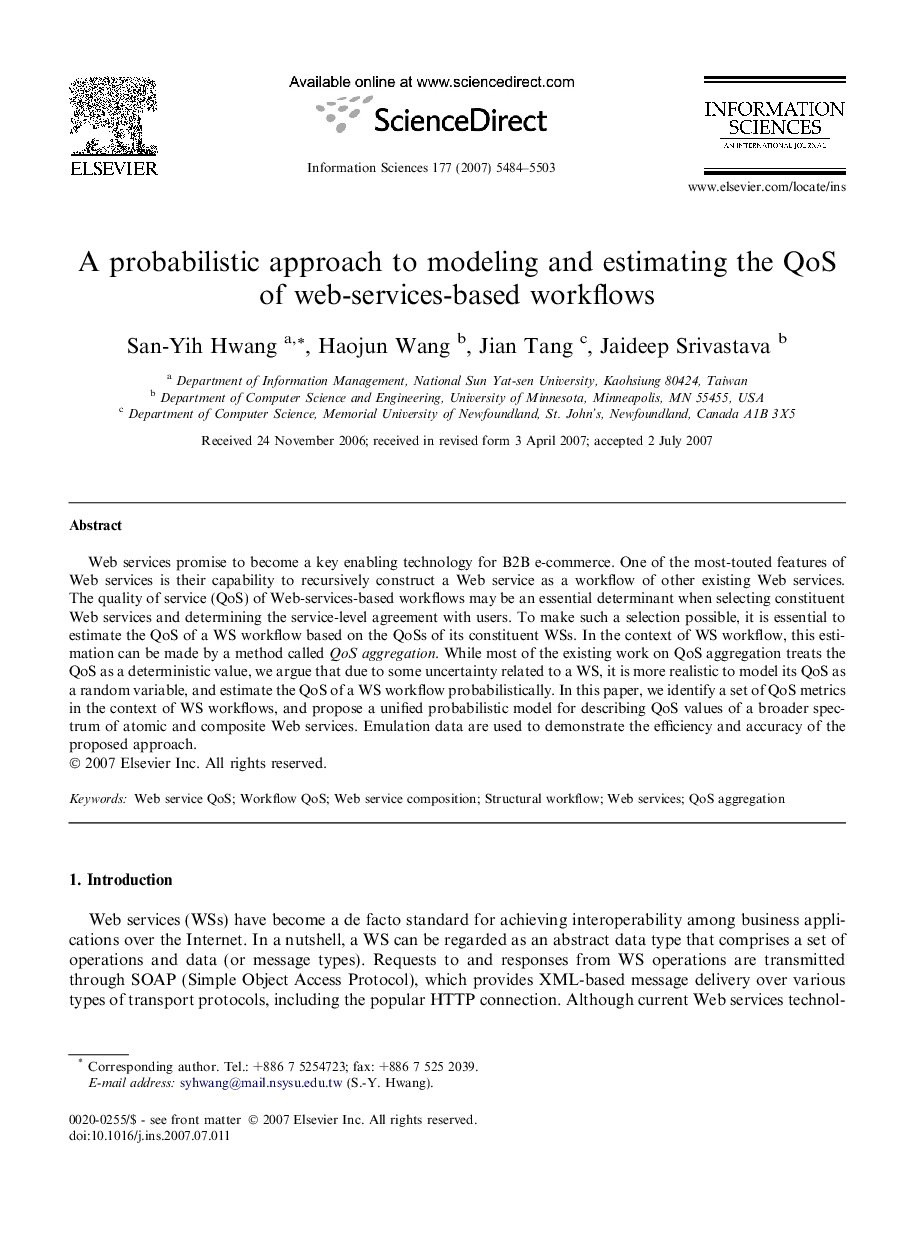| Article ID | Journal | Published Year | Pages | File Type |
|---|---|---|---|---|
| 395355 | Information Sciences | 2007 | 20 Pages |
Web services promise to become a key enabling technology for B2B e-commerce. One of the most-touted features of Web services is their capability to recursively construct a Web service as a workflow of other existing Web services. The quality of service (QoS) of Web-services-based workflows may be an essential determinant when selecting constituent Web services and determining the service-level agreement with users. To make such a selection possible, it is essential to estimate the QoS of a WS workflow based on the QoSs of its constituent WSs. In the context of WS workflow, this estimation can be made by a method called QoS aggregation. While most of the existing work on QoS aggregation treats the QoS as a deterministic value, we argue that due to some uncertainty related to a WS, it is more realistic to model its QoS as a random variable, and estimate the QoS of a WS workflow probabilistically. In this paper, we identify a set of QoS metrics in the context of WS workflows, and propose a unified probabilistic model for describing QoS values of a broader spectrum of atomic and composite Web services. Emulation data are used to demonstrate the efficiency and accuracy of the proposed approach.
